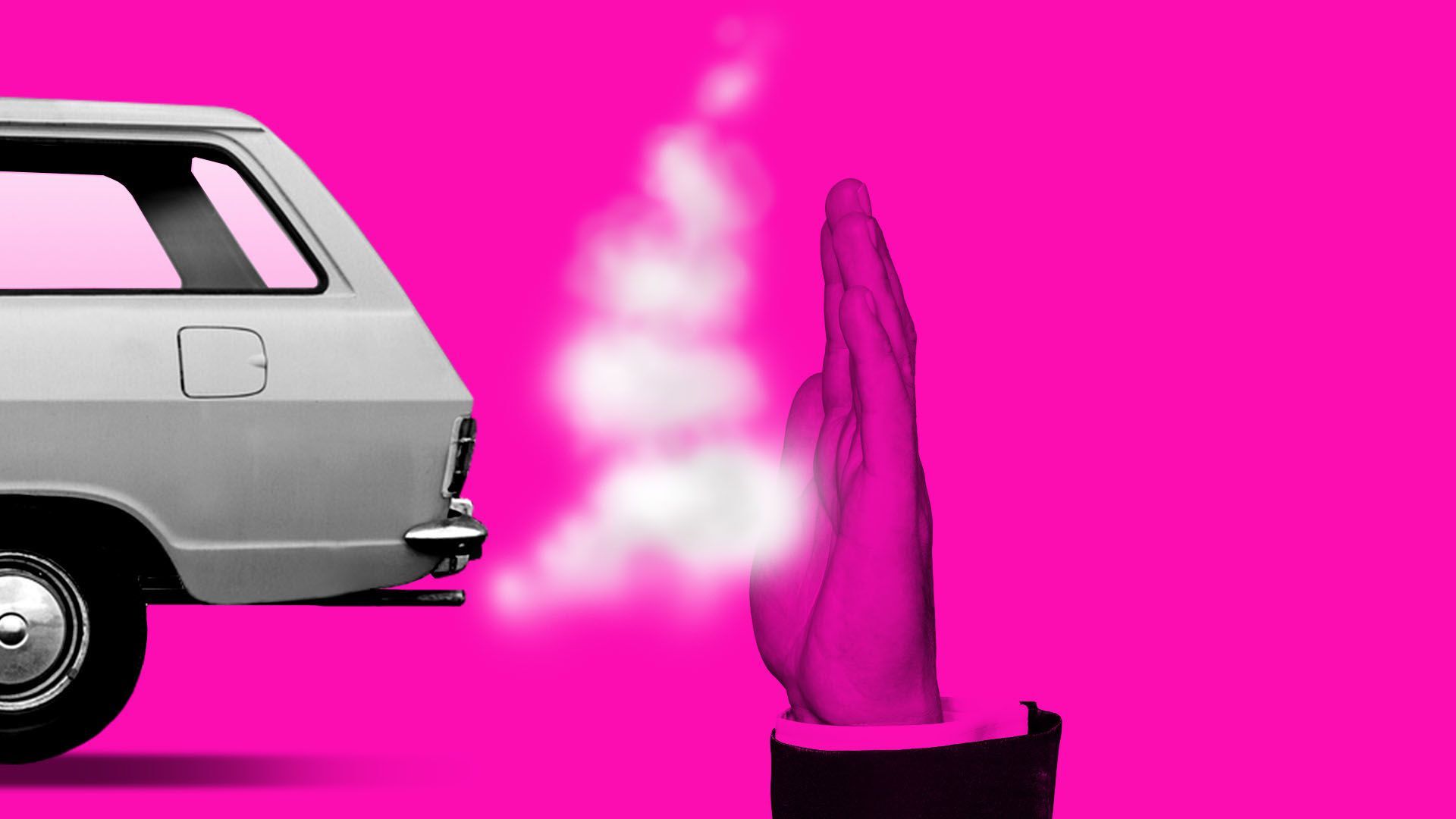
A new analysis provides the latest evidence that the explosive growth of ride-hailing services like Uber and Lyft is making it harder to fight CO2 emissions from transportation.
Driving the news: The Union of Concerned Scientists studied the triple-whammy of trips replacing climate-friendly transit, inducing new travel and "deadhead" miles — that is, when ride-hailing vehicles move without passengers.
What they found: "A typical ride-hailing trip is about 69 percent more polluting than the trips it replaces, and can increase congestion during peak periods," it states.
- Those "deadhead" miles are a big problem and more than cancel out the fact that ride-hailing vehicles are more efficient on average than personally owned cars.
Why it matters: Transportation is the nation's largest source of greenhouse gas emissions, overtaking electric power a few years ago.
The big picture: While the emissions analysis isn't in a peer-reviewed journal, it's directionally consistent with analyses of how ride-hailing is cannibalizing more climate-friendly modes of transit — like trains, bikes, buses and feet — and fueling congestion.
- For instance, a paper last year in the journal Science Advances found that ride-hailing companies are the " biggest factor driving the rapid growth of congestion" in San Francisco.
What they're saying: “Certainly the evidence to date points to an overall increase in greenhouse gas emissions associated with ride-hailing under current market conditions,” said Giovanni Circella of the Institute of Transportation Studies at UC Davis, which provided some of the data used by UCS.
What's next: The report lays out a bunch of recommendations for ride-hailing companies and policymakers.
- It calls on the companies to boost their fleet electrification efforts, encourage more pooled rides, "facilitate connections to mass transit," and aim to better complement modes like biking and walking.
- "[I]f ride-hailing companies switch to EVs and increase the share of pooling to 50 percent, emissions would be 52 percent lower than the displaced trips," it finds.
- It also calls on policymakers to boost investments in mass transit, and pedestrian- and bike-friendly infrastructures. Policymakers should also help ride-hailing companies electrify and create incentives for pooled rides, like lower tolls.
The intrigue: The accumulating evidence of ride-hailing's impact and the recent IPOs of Uber and Lyft are likely to create new pressure on the companies.
- "[I]t is reasonable to expect increased scrutiny from investors on this topic at those companies," said Lila Holzman of the shareholder advocacy group As You Sow.
- "Fleet electrification and other strategies to reduce unacceptably high emissions from the transportation sector are of increasing importance to investors," she said.
The other side: It's worth noting that Uber and Lyft — which have acknowledged some congestion effects — both have a bunch of sustainability and electrification programs.
Lyft pushed back against the UCS report and alleged the methodology was flawed and incomplete.
- It argues that it doesn't accurately capture how their service, by enabling people to forgo owning cars, prompts use of mass-transit and ride-hailing.
- "This report, like many before it, makes misleading claims about rideshare. Lyft encourages the use of shared rides, was the first rideshare company to put public transit information into our app, and last year, made one of the largest single deployments of electric vehicles in the nation," spokesperson Campbell Matthews said.
Uber, meanwhile, pointed to its own green efforts.
- "To unlock the opportunities we have to reduce emissions, we will continue to invest in products and advocate for policies that reduce car ownership, promote more pooled trips and support greater adoption of bikes, scooters, green vehicles and the use of public transit," the company said.
Go deeper: The climate stakes of Uber's IPO


.jpg?w=600)




